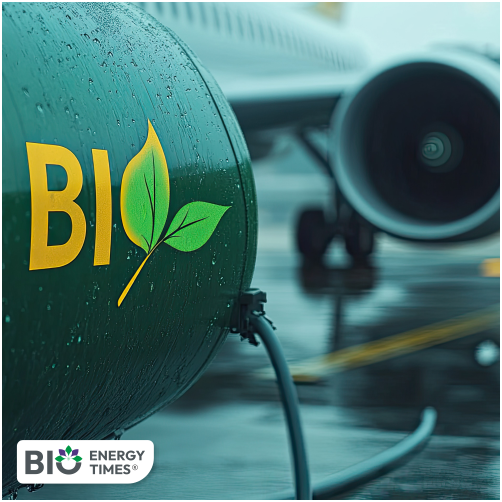Sumitomo Corporation has teamed up with Denmark’s Skovgaard Energy to form a new joint venture, North Sky A/S, aimed at ramping up biogas production and developing sustainable aviation fuel (e-SAF) in Denmark, reports Chemanalyst News.
The joint venture is targeting an annual biogas output of around 40 million normal cubic meters, which would be enough to supply gas to about 20,000 Danish households. It will also oversee the expansion of Skovgaard Energy’s current biogas facilities across the country, further reinforcing Denmark’s position in renewable energy.
In addition to scaling up biogas, North Sky A/S plans to explore other bioenergy solutions, with a focus on e-SAF—a synthetic fuel made from biomass-derived CO₂ and green hydrogen. This fuel is considered an essential step toward cutting emissions in the aviation industry.
“By combining Sumitomo’s global reach with our experience in renewable energy, we’re building a solid foundation for the future of clean fuels,” said a spokesperson from Skovgaard Energy.
Denmark’s strong agricultural base makes it well-suited for biogas production, which uses organic waste like food scraps and animal manure. The country aims to fully supply its national gas grid with biogas by 2030. Biogas is considered climate-friendly, as it only releases the CO₂ that was originally absorbed by its organic feedstock. It also supports domestic energy security and boosts local infrastructure.
Skovgaard Energy, founded in 1999, brings over two decades of expertise in renewable energy, including wind power and biogas from cattle manure. The company has secured long-term raw material supply agreements through 2032 with agricultural cooperatives, ensuring a steady input for biogas production.
With Denmark already sourcing 90% of its electricity from renewables, the country is well-positioned to produce green hydrogen—a key ingredient in e-SAF. By expanding biogas operations, North Sky A/S will also be able to supply a reliable and cost-effective stream of CO₂ needed for synthetic fuel production.
The partnership is expected to strengthen Denmark’s clean energy sector and support the global transition to low-emission transportation, particularly in aviation.














